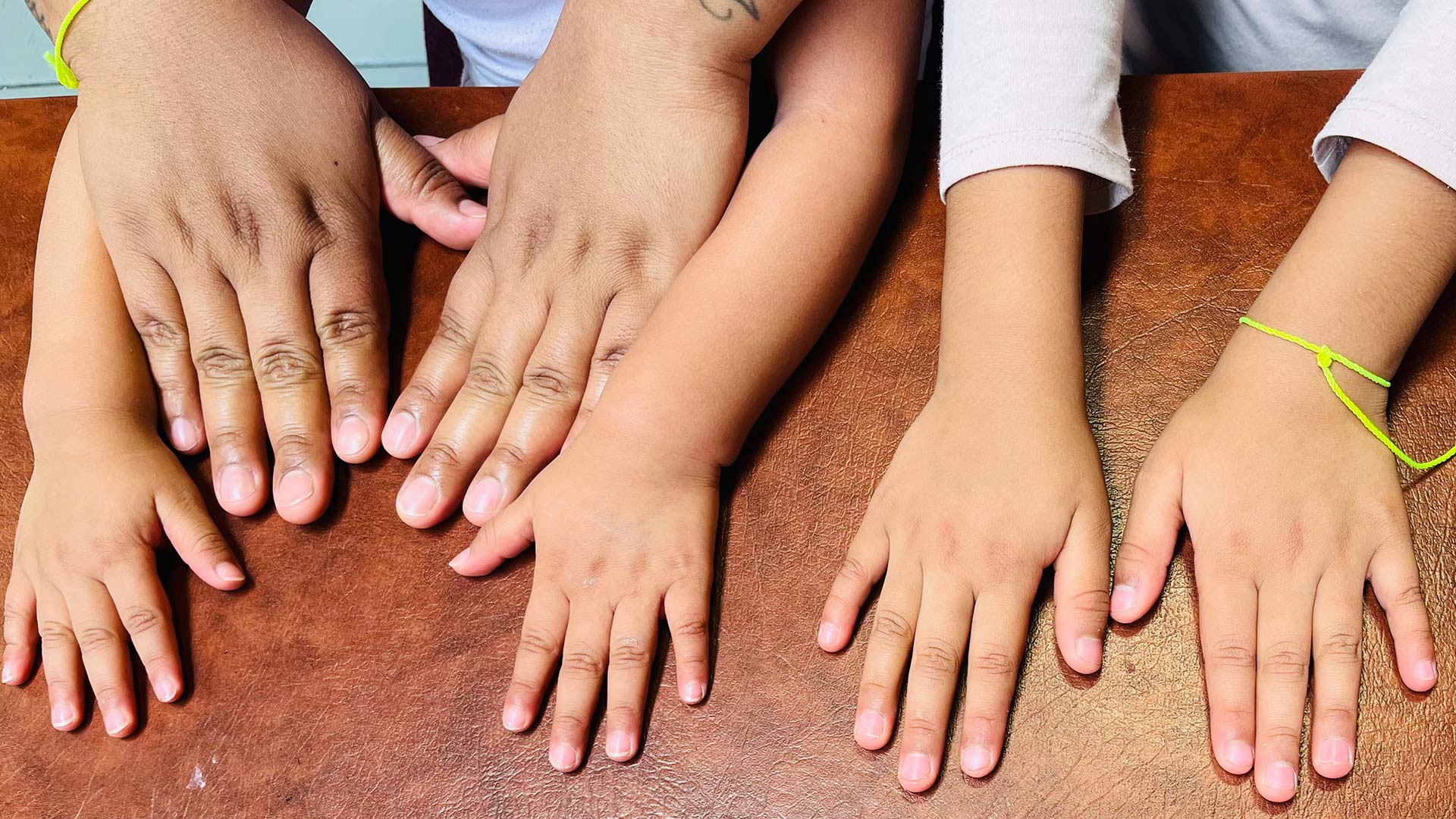 Itzel waits in Nogales, Sonora, hoping to get a chance to ask for asylum in the U.S., for herself, her husband and their two young daughters. She asked that we don't show their faces due to fears for their safety after running from threats in Mexico City.
Itzel waits in Nogales, Sonora, hoping to get a chance to ask for asylum in the U.S., for herself, her husband and their two young daughters. She asked that we don't show their faces due to fears for their safety after running from threats in Mexico City.
President Biden’s new border policy to quickly remove migrants at the southern border seems to be achieving its goal. Migrant apprehensions dropped by more than 40% in the first three weeks after the executive order.
The policy has also led to the number of migrants in Sonoran border towns increasing. Border officials are processing migrants who cross the border unauthorized then quickly returning many of them to Mexico.
Many of these migrants say an added complication they are facing is that border officials are throwing away most of their belongings, including baby formula, diapers, cell phones and even the clothes they are wearing.
Many of the couple dozen migrants at the port in Nogales, Sonora, on a recent morning carried only a small plastic bag with their passports and most important possessions. A couple of women say officials threw their cell phones in the trash. A man wearing flip flops says they threw away his shoes.
A young mother was wearing a paper shirt someone might wear at a doctor’s appointment as she breastfed her child. She said border officials threw her shirt and maternity bra in the trash. She doesn’t know why.
Itzel is receiving assistance at the binational migrant help center Kino Border Initiative in Nogales, Sonora. She asked we only use her first name, having fled Mexico City with her husband and two small daughters after ongoing threats and violence toward her family escalated.
When her family crossed the border into Arizona unauthorized and turned themselves in, border officials threw away her belongings, including her cell phone.
Itzel said in Spanish that she had with her a bag of diapers, wet wipes for her 2-year-old baby, and a change of clothes. And they put everything in the trash.
Yohana Oviedo, with the Kino Border Initiative, says this is an extremely common occurrence.
She says that many migrants tell them they asked officials to return their clothes, some that had a special significance for them, and yet there is no respect for returning these types of belongings. They arrive at the center with clothes in very bad condition. And so the center provides them with clothes that are correct, dignified and clean.
This is happening despite the fact that Homeland Security Secretary Alejandro Mayorkas recently told AZPM that while officials do take individuals’ belongings for safety reasons, they return the belongings when the person is removed from the country or taken to a different facility, which he says is the standard operating procedure.
“If there's a case where an individual has not had their property returned, I assure you that it's an aberration,” he said.
Data compiled by ProtectAZ Health in a partnership with the ACLU, found that over the last year, 20% of respondents who had HIV reported their medication being permanently confiscated, as well as 20% of those with hypertension, 16% with diabetes and 14% with asthma.
Noah Schramm, with ACLU Arizona, says this issue goes back to at least 2019 reports of border officials discarding children’s medications, and later in Yuma, officials were throwing away migrants’ religious garb.
A government watchdog found that there is a lot of inconsistency across the different border sectors on dealing with people’s belongings.
“Their diagnosis was: Your policy isn't specific enough,” Schramm said. “Your policy is not doing a good job of telling Border Patrol stations what they can and can't do, and so therefore you're getting all these differential outcomes.”
A May report by the Government Accountability Office said border officials should issue clarifying guidance for the handling of personal property and develop an oversight mechanism. As well, the report said, officials needed to provide people with written instructions on how to retrieve their belongings after being released.
DHS said it would implement the recommendations by the year’s end.

By submitting your comments, you hereby give AZPM the right to post your comments and potentially use them in any other form of media operated by this institution.